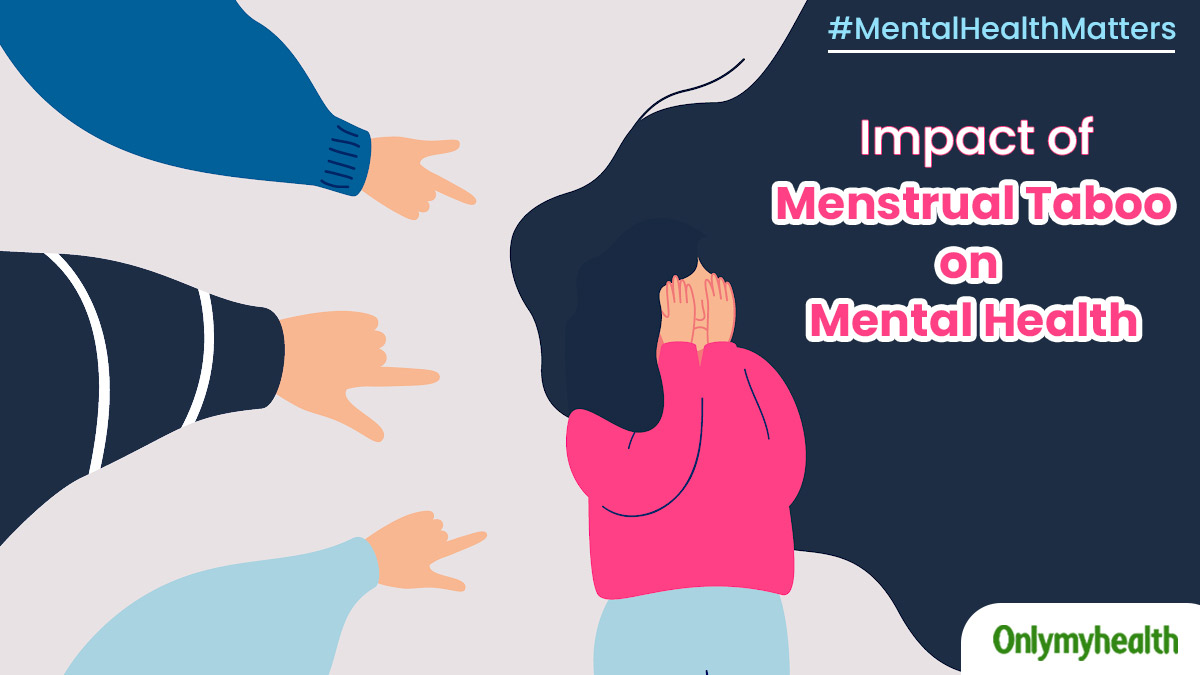
Menstruation, a natural and vital process experienced by half of the world's population, remains shrouded in secrecy and shame. Despite advancements in society, the persistent taboos surrounding menstruation perpetuate stigma and discrimination. Under our special campaign, 'Mental Health Matters' and on this World Menstrual Hygiene Day, we reached out to leading experts to know how these taboos impact mental health.
Societal Stigmas
We reached out to Dr Sangeeta Raodeo, Consultant Gynaecologist and Obstetrician, Fortis Hospital Mulund, Mumbai. She said, "Menstruation, the word itself has had many taboos for ages. It is a natural process that occurs in females of reproductive age, where the lining of the uterus sheds and exits the body through the vagina."

Also Read: PeriodEducationForAll: Common Menstrual Myths Debunked By Dr Anjali Kumar
She said, "But the irony is, even in today’s time, things have not changed much. Women are considered impure, dirty, or sinful while they are menstruating; so they are asked to sit in one room and are not allowed to touch food or water." She added that they are not allowed to visit temples or even schools. All this leads to women feeling ashamed to talk about problems they face during menstruation.

In 2022, United Nations Population Fund (UNFPA) India published a report that mentioned, "Priyanka Meena, a 15-year-old from Rajasthan, sleeps outside her house in a space separated by a sari when she is menstruating. She uses the same utensils and wears the same clothing during her periods, which are considered unclean and cannot be brought into the house even after her period ends."
"These prejudices create discrimination and place burdens on girls' self-esteem, confidence, and self-worth, which is detrimental to their well-being," said Damini Grover, Counselling Psychologist, Heal Your Life Coach, Founder - I'M Powered Center for Counseling and Well-being, Delhi.
Impact on Mental Health
Grover said that this deep-rooted mindset leads ends up creating a lot of discrimination, leading to feelings of loneliness, depression, and low self-esteem among menstruating girls and women. She said, "By restricting women to take part in activities during menstruation, which is natural, is dehumanising and compromises their dignity."

Citing an example, Grover said, "If guys find out that a girl is on her period, they may make nasty comments and poke fun at her. This can make girls feel uncomfortable when buying pads or even telling anyone that they are on their period. As a result, the conversation around menstruation becomes difficult."
Also Read: The Impact of Menstrual Taboos on Women's Health and Wellbeing
Dr Raodeo said, "The lack of education and awareness also results in missed educational opportunities and overall reduced performance. Additionally, women take hormonal pills to postpone menstruation which can have adverse side effects." She added that in some cases when women are not allowed to take a bath, it causes serious infections.
Normalising Menstrual Hygiene
Grover said, "The conversation around menstrual health needs to change. It includes shifting societal perceptions, encouraging open dialogues, access to sanitary products, and promoting proper hygiene management." She added that this will ensure women and girls can maintain their dignity and overall well-being during menstruation.

She said, "Parents and the education system play a vital role in normalising conversations around menstruation." She added that by providing comprehensive education on menstrual health and hygiene, girls can gain the confidence to discuss their experiences openly. "It is equally important to engage boys in these discussions, fostering respect, empathy, and support for girls' menstrual well-being," she added.
Bottomline
Recognising menstruation as a natural part of women's health is crucial in dismantling the stigma associated with it. By challenging these beliefs, society can foster inclusivity and reduce discrimination. Sensitivity and support should replace judgment and harassment, acknowledging the physical and emotional challenges women face during menstruation.
Also watch this video
How we keep this article up to date:
We work with experts and keep a close eye on the latest in health and wellness. Whenever there is a new research or helpful information, we update our articles with accurate and useful advice.
Current Version